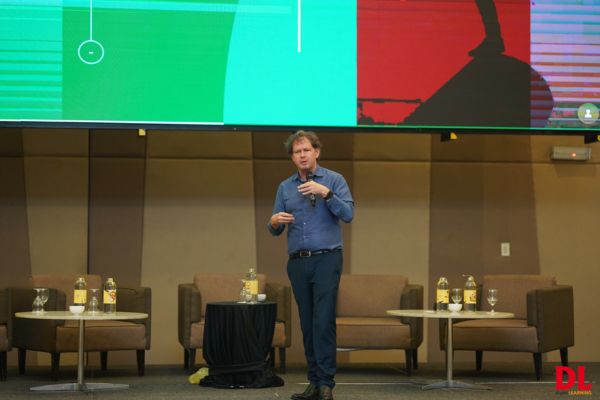
Dr. Marc Mesich, Principal, The International School of Penang Malaysia shares a thought-provoking perspective on the role of educators and leaders in creating a conducive and supportive learning environment. Dr. Mesich’s insights revolve around the critical importance of fostering a sense of safety and trust among students, especially those who may not feel adequately supported within the school community.
He raises a poignant question for educators to ponder: What if we were to approach our most challenging students and ask them whether they have at least one adult in the school whom they trust and genuinely connect with? The potential tragedy lies in the possibility that a significant number of students might respond with a resounding “no.” This stark reality underscores the pressing need to address the issue of isolation among students, as it has far-reaching consequences for their well-being and academic success.
Additionally, Dr. Mesich delves into the often-overlooked stress that school leaders face in their day-to-day roles. Given the task-driven nature of their responsibilities, school leaders can become so consumed with their duties that they scarcely find time to reflect on their own well-being. Drawing a parallel to the concept of the “zone of proximal development” in classroom teaching, he suggests that school leaders should also aim to strike a balance in their professional lives. They should seek a state where they are neither bored nor overwhelmed, as this equilibrium can foster personal and professional growth.
In this context, Dr. Mesich highlights the importance of supporting one’s team, recognizing their capabilities, and preventing them from being crushed by the burdens of their jobs. He emphasizes the need for effective time management, stress management, and the skill of setting priorities. In this way, school leaders can not only promote their own well-being but also create a healthier and more productive work environment for their faculty and students.
The discussion extends to various leadership styles and strategies that can alleviate stress and improve leadership effectiveness. Dr. Mesich introduces the concepts of distributed leadership, transformational leadership, and situational leadership. He underscores the significance of delegation and empowerment, guiding staff’s growth and development, and adaptability to varying situations. Each of these leadership approaches serves as a valuable tool for enhancing the work environment and reducing stress levels among educators and school leaders.
The presentation also touches on the role of culture and context in shaping leadership practices. Dr. Mesich emphasizes the importance of considering the unique culture and context of each educational institution. By understanding and adapting to these factors, leaders can create environments that are safe, secure, and conducive to growth and development.
Furthermore, Dr. Mesich invites school leaders to reflect on their own experiences with leaders and bosses they have encountered. He encourages them not to forget the impact of negative leadership experiences, such as feeling invalidated, disrespected, or unheard. By remembering these experiences, leaders can strive to be the kind of leaders who validate their staff, value their opinions, and foster a participatory and shared decision-making environment. This approach not only attracts creative individuals with a growth mindset but also retains them within the organization.
Dr. Mesich’s insightful perspective underscores the responsibility of educators and school leaders to create a safe and nurturing environment for all students and staff. His ideas encourage leaders to find balance, adopt effective leadership styles, consider context and culture, prioritize well-being, and, most importantly, inspire a positive and inclusive school culture.






















